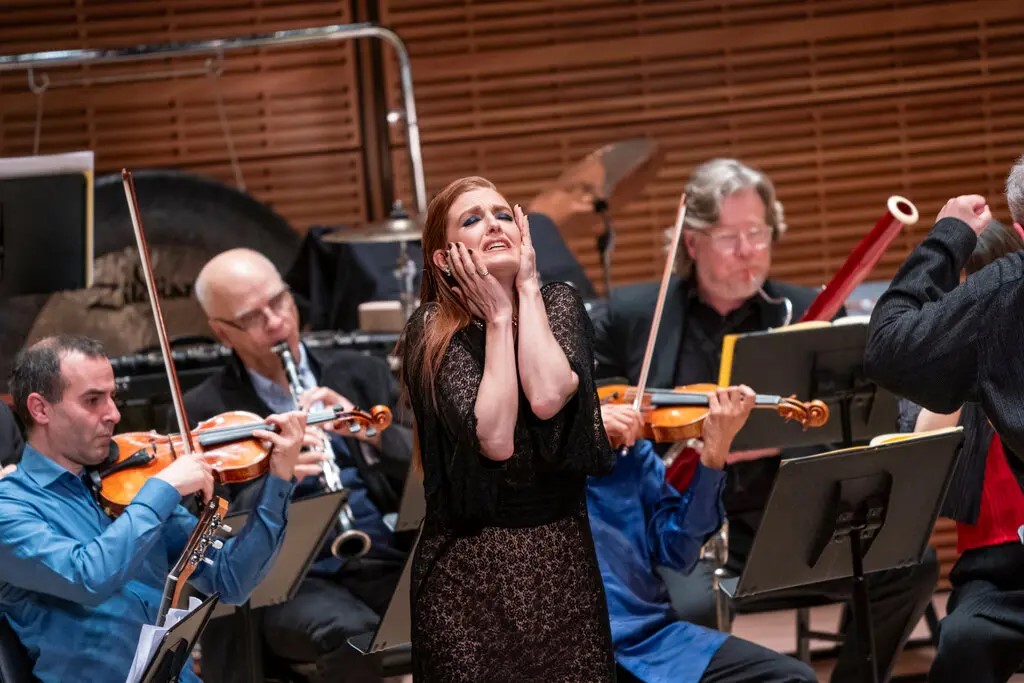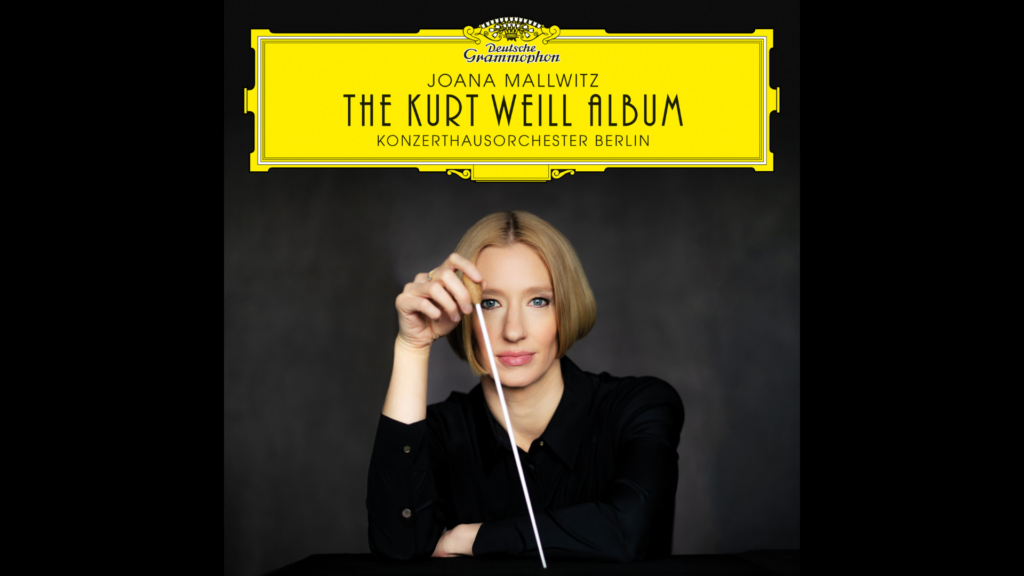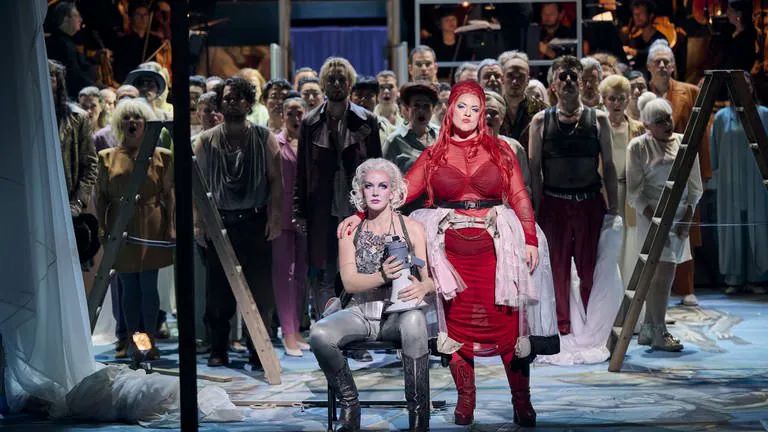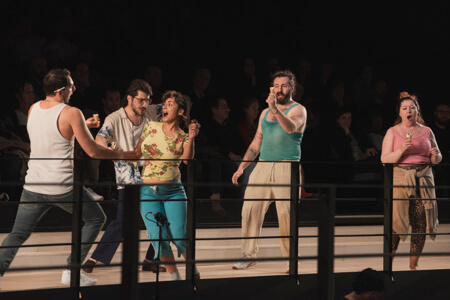Weill’s music has figured prominently in Carnegie Hall’s programming in the first months of 2024, with performances taking place especially within the frame of the festival “Fall of the Weimar Republic: Dancing on the Precipice.” The festival reached a peak in an April program performed by Frankfurt’s Ensemble Modern featuring repertoire by Paul Hindemith, Erich Wolfgang Korngold, and Arnold Schoenberg, capped by the New York premiere of the new fifteen-player version of The Seven Deadly Sins. “Ensemble Modern’s concert Friday was one of the festival’s few fully Weimar programs — and all the more compelling for that,” wrote Zachary Woolfe in the New York Times, praising the ensemble for its “precision and lucidity.” In a rare alignment, the evening’s performance of Die sieben Todsünden, described by Woolfe as “delightfully intimate and witty,” boasted three proven champions of Weill’s work. One of only eight recipients of the Kurt Weill Foundation’s Lifetime Distinguished Achievement Award, HK Gruber conducted this New York premiere of the fifteen-player version that he himself prepared in conjunction with Christian Muthspiel. Over the past three decades, Ensemble Modern has recorded, in collaboration with Gruber, more Weill works than any other ensemble in the world. Mezzo-soprano Wallis Giunta has by now claimed her place among the world’s leading “Annas,” having performed the Sins multiple times with the likes of the Toronto Symphony, Real Orquesta Sinfónica de Sevilla, Oregon Music Festival, and Opera North in the UK premiere of the Gruber-Muthspiel version that was live-streamed globally in 2020. Woolfe lauded her Carnegie performance, with the male quartet amarcord as The Family, which “guided the audience through a parade of misadventure with a light, meticulous touch, neither too offhand nor too exaggerated — as bracing yet sweet as a shot of schnapps.” | 




